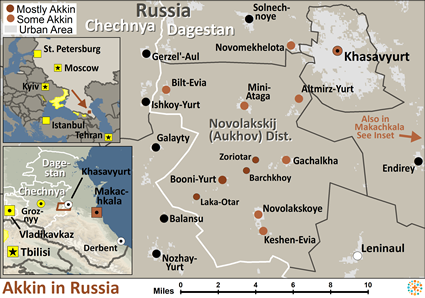Akkin have a strong self-identity, despite typically being misrepresented in official census statistics as Chechen. To Chechens, Akkin are Akkin. To Russians, Akkin are Chechen. To Akkin, Akkin are Akkin. They speak a distinct dialect of the Chechen language and live among village/town clusters at the western edge of Dagestan surrounding the major city of Khasavyurt. There are a handful of Christ followers among the Akkin. These believers could reach their own people.
The Akkin live along a transport corridor between Makhachkala, the capital of Dagestan to the east, and Groznyy, the capital of Chechnya to the west. One export along this corridor is constant competition between factions of extremist Islamists. If they fall into this spiritual trap, it will pose a huge obstacle to the gospel.
Pray for the few Akkin Christ followers to be filled with the love and boldness of the Holy Spirit.
Pray for Chechen believers to have courage to reach out to their Akkin cousins.
Pray for Caucasus house churches to notice opportunities for friendship and connections with their Akkin neighbors.
Scripture Prayers for the Akkin in Russia.
| Profile Source: Joshua Project |

























